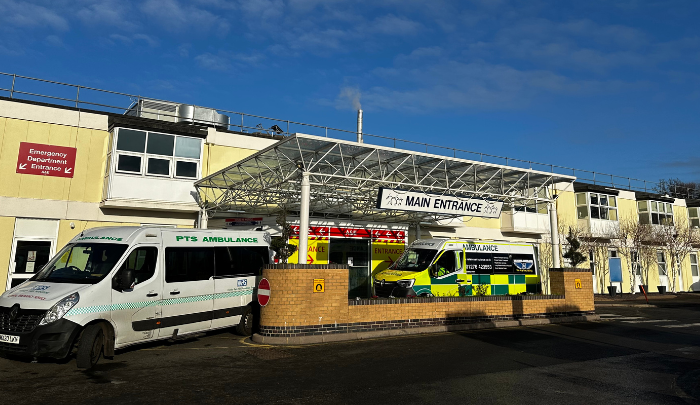The Allergy and Clinical Immunology Unit is a regional centre serving the population of Surrey, Berkshire and neighbouring areas. The unit functions as a network based across several NHS Trusts in the region, including the Royal Surrey, Frimley Health and Ashford & St Peters, and provides clinical services in several locations.
Adult allergy service
In this service, we see adults (from the age of 16 years) with suspected allergies, including foods, drugs, insect stings and / or airborne allergens (e.g. pollens causing hayfever, dust mite or animals). We also care for people with recurrent urticaria (also known as nettle rash or hives) and swellings.
We do not usually see people where the main problem is eczema, this is normally managed by the dermatology team and / or primary care teams.
We provide a full range of specialist allergy services including:
- Drug allergy testing and challenges
- Food allergy testing and challenges
- Sublingual immunotherapy
- Subcutaneous (injection) immunotherapy
- Omalizumab therapy and training for self-administration if required
General allergy clinics take place on all days of the week (Monday to Friday). More specialised allergy services, including injection immunotherapy / desensitisation, and drug and food allergy challenge testing are held at the Royal Surrey County Hospital, Guildford.
To be seen in the allergy service, you will need a referral from your GP via the electronic referral system (ERS) or from another hospital doctor who has seen you.
The most important thing we will do on the day of your appointment is to take a detailed description of your symptoms. Based on this history, we may suggest some allergy testing. Allergy testing may not always be necessary and this will be discussed with you on the day. If allergy testing is appropriate, we will explain to you what is required and organise for this to be the done. We would try to do this on the same day as your visit, but further appointments may be necessary. Please allow at least 1- 2 hours for your appointment.
Four different types of allergy tests are available.
Blood tests for allergy. These are known as specific IgE tests. The results will need to be interpreted by your clinician, and will be discussed with you in a clinic appointment.
Skin prick testing. This involves gentle pricks to the skin in the presence of the substances suspected of causing allergy. It is not painful but can be itchy if you react. If this form of testing is required, we ask that you stop taking antihistamines (if you are able to) 5 days before the skin prick testing appointment, as antihistamines can affect the test.
Intradermal testing. For this test, small injections are given under the skin. This test is usually undertaken for the investigation of certain drug allergies, and rarely for investigation of insect venom allergy. It requires a separate visit after your initial appointment and will be discussed in further detail if required.
Challenge testing. For this test, a person is exposed to the potential allergen (usually medication or food) in gradually increasing amounts. This will require a separate appointment and is only undertaken in certain circumstances. If it is relevant to you, it will be discussed in detail during your outpatient appointment.
Allergen immunotherapy (also known as desensitisation) is a form of treatment where a person is given the substance that they are allergic to in a controlled manner. The treatment is given as a course over several years, and can continue to have a benefit on a person’s allergic symptoms for many years, even after the treatment course has been completed.
Immunotherapy is available for:
- People with severe hayfever or allergic nasal disease, where standard allergy medication has not worked. This can be given either as injections (subcutaneous immunotherapy) which are done in hospital, or drops/tablets under the tongue (sublingual immunotherapy) which are taken at home.
- People who have had a generalised allergic reaction to wasp or bee stings. This is only available as injections (subcutaneous immunotherapy) which are performed in hospital.
More information
-

Frimley Park Hospital
Address:
Portsmouth Road
Frimley
GU16 7UJ -

Heatherwood Hospital
Address:
Brook Avenue
Ascot
SL5 7GB
